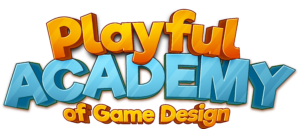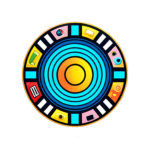

Categories
Teams Make Games
Learning Objectives
- Lesson objectives
- Understand the definition of a puzzle
- Remember strategies to work effectively with others
- Understand different roles in game design
- Socioemotional learning objectives
- Cooperative
- Responsible
- Welcoming
Materials
- Giant puzzle, with 1-2 pieces per player and large enough for campers to move around and place pieces
- Option: Use a blown-up coloring sheet so campers can color in the completed puzzle
- Internet-connected device for campers to watch
- Projector (optional)
Instructions
- Puzzles
- Ask campers what they think of this definition of a puzzle: An activity in which pieces need to be rearranged to reveal previously unknown information. Do they think this is accurate? What kinds of puzzles fit this definition and what kinds don’t?
- Give each camper one piece of the giant puzzle and tell them they will assemble a puzzle
- Tell them the rules:
- You may only touch your piece of the puzzle. You cannot touch any other pieces of the puzzle
- After you speak, you must wait for someone else to speak before speaking again
- You may move wherever you like
- Allow campers to work until they have assembled the puzzle
- Solving the puzzle was a challenge because they had to work with others. Discuss:
- What made this easy to do?
- What made it hard?
- What strategies did you use to keep yourself from touching other players’ pieces?
- How did you plan ahead?
- How did you work with other players?
- What makes this activity a puzzle?
- Game design as a team activity
- Many games, especially high profile ones, are developed in teams. What are some of the team members that might be part of designing a video game or a board game?
- Play The 6 Roles That You Need to Build a Great Indie Dev Team (time 12:21) and discuss
- The roles are: lead engineer (programmer), game designer, audio designer, artist/animator, project manager, PR/marketing, and quality control
- What do you think it means to be responsible when you're part of a game design team?
- How can a team member be cooperative as they build their part of the game?
- How can designers be welcoming when there are differences of opinion in the way the game should look or play?
- These skills are useful whether you are designing a game or working in any kind of team. We can think about games as puzzles and each piece of the design team is needed to make the game great.
Notes and Discussion
Discussion
- Remind campers that each piece of the puzzle is a resource, but resources can look like different things. Throughout the day, pay attention to how games use different kinds of puzzles.
- When campers seem frustrated or challenged, remind them of the traits and skills they wrote on the giant sticky note.
